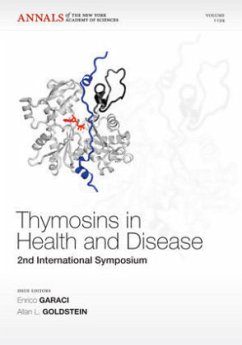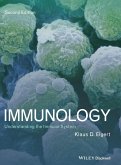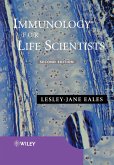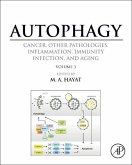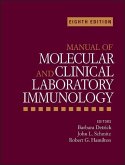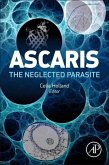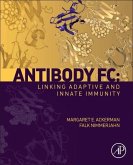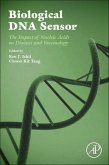This volumes features contributions on the latest advances in the chemistry, biology and clinical applications of the thymosins from leading scientists and clinicians working in the field. The use of chemically defined and synthesized molecules, rather than crude or partially purified extracts has enabled scientists working in this field to acquire definitive information on the molecular biology, immunology and potential clinical applications of this important class of BRMs.
Paper in this volume cover a wide range of topics including:
advances in the structure, design, immunology and molecular biology of thymosin alpha 1 (Talpha1), prothymosin alpha (ProTalpha) and thymosin beta 4 (Tß4).
an exploration of role of the thymosins in cardioprotection, neuroplasticity, stem cells, wound healing, inflammation and angiogenesis
clinical applications of Talpha1 and other BRMs
a look at the current status of translational trials with Tß4 in areas of wound repair, cardiovascular disease, epidermolysis bullosa and eye injuries.
The availability of synthetic thymosins enables both researchers and clinicians to acquire definitive information on the immunology, pharmacology and emerging clinical applications of Talpha1 and Tß4. Clinicians will be particularly interested in the most recent reports of clinical responses and diagnostic applications.
This volume will also be of keen interest to biochemists, pharmacologists, immunologists and other basic scientists interested in acquiring information on the state of the art of the latest purification procedures, the chemical characterization, pharmacokinetics, immunopharmacology, and molecular biology of the thymosins alone or in combination with other BRMs and standard therapies.
NOTE: Annals volumes are available for sale as individual books or as a journal. For information on institutional journal subscriptions, please visit www.blackwellpublishing.com/nyas.
ACADEMY MEMBERS: Please contact the New York Academy of Sciences directly to place your order (www.nyas.org). Members of the New York Academy of Science receive full-text access to the Annals online and discounts on print volumes. Please visit for more information about becoming a member.
Hinweis: Dieser Artikel kann nur an eine deutsche Lieferadresse ausgeliefert werden.
Paper in this volume cover a wide range of topics including:
advances in the structure, design, immunology and molecular biology of thymosin alpha 1 (Talpha1), prothymosin alpha (ProTalpha) and thymosin beta 4 (Tß4).
an exploration of role of the thymosins in cardioprotection, neuroplasticity, stem cells, wound healing, inflammation and angiogenesis
clinical applications of Talpha1 and other BRMs
a look at the current status of translational trials with Tß4 in areas of wound repair, cardiovascular disease, epidermolysis bullosa and eye injuries.
The availability of synthetic thymosins enables both researchers and clinicians to acquire definitive information on the immunology, pharmacology and emerging clinical applications of Talpha1 and Tß4. Clinicians will be particularly interested in the most recent reports of clinical responses and diagnostic applications.
This volume will also be of keen interest to biochemists, pharmacologists, immunologists and other basic scientists interested in acquiring information on the state of the art of the latest purification procedures, the chemical characterization, pharmacokinetics, immunopharmacology, and molecular biology of the thymosins alone or in combination with other BRMs and standard therapies.
NOTE: Annals volumes are available for sale as individual books or as a journal. For information on institutional journal subscriptions, please visit www.blackwellpublishing.com/nyas.
ACADEMY MEMBERS: Please contact the New York Academy of Sciences directly to place your order (www.nyas.org). Members of the New York Academy of Science receive full-text access to the Annals online and discounts on print volumes. Please visit for more information about becoming a member.
Hinweis: Dieser Artikel kann nur an eine deutsche Lieferadresse ausgeliefert werden.

